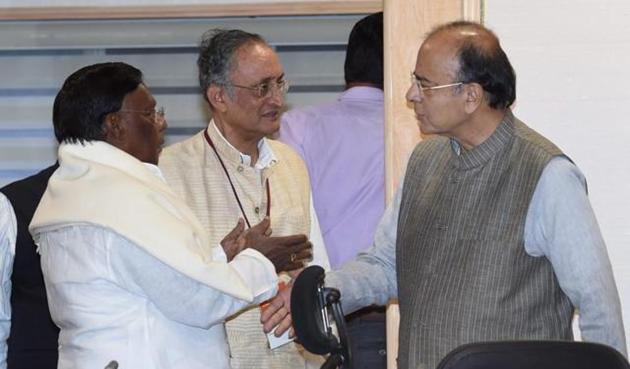West Bengal opposed to GST in present form, says Amit Mitra
West Bengal today said that its assembly will not move the bills required to roll out the new indirect tax. GST is scheduled to be rolled out on July 1.
Heightening uncertainties about the Goods and Services Tax (GST), West Bengal today said that its assembly will not move the bills required to roll out the new indirect tax.

GST is scheduled to be rolled out on July 1. While the Parliament had passed all the four GST-related bills during the budget session, states will have to ratify the State-GST legislation to rollout the new tax. Twenty-two states have so far passed the SGST Bill, other states have time till the first week of June to ratify it.
The dissent was expressed by Amit Mitra, state finance minister at the state secretariat in Kolkata on Tuesday. He will raise the West Bengal’s objections in the next GST council meeting on June 3, Mitra said.
Mitra also said that he will object to the Centre’s proposal to levy GST on items such as shoes, wig, and vernacular cinema. “I shall also highlight that there are major objections from different sectors of the state to rolling out GST from July 1. The services sector is against it”.
Rolling out GST as it stands today will be a double-burden on the states that are yet to recover from the shocks of demonetisation, said the Bengal finance minister, who was also the chairman of the empowered committee of state finance ministers.
This is not the first time that West Bengal has opposed GST. Along with Kerala, the state was foremost in its reservations against the new indirect tax.
The objective of GST of creating a unified market will fail if it is not adopted by all states. But indirect tax reforms in India have seen staunch opposition even in the past, case in point the adoption of VAT. Certain states such as Uttar Pradesh adopted VAT much later than the rest of India.





